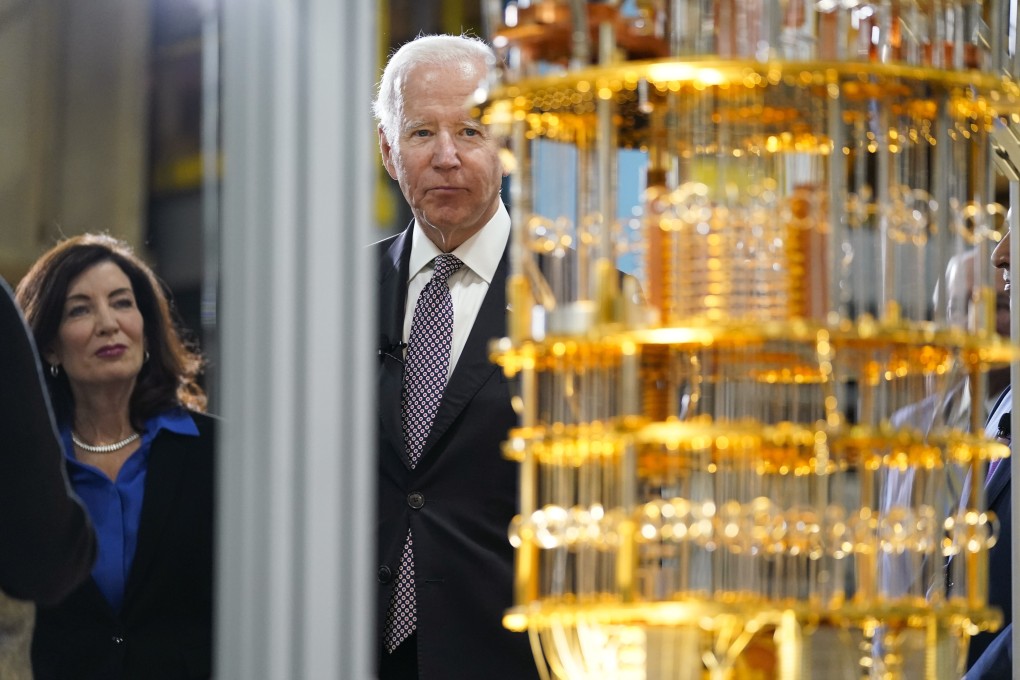US weighs more China tech restrictions, targeting quantum computing and artificial intelligence
- The Biden administration is exploring new export controls that would include investment in nascent quantum computing and artificial intelligence technologies
- Quantum computing is an experimental field with the potential to upend computer security by circumventing traditional encryption

The Biden administration is exploring the possibility of new export controls that would limit China’s access to some of the most powerful emerging computing technologies, according to people familiar with the situation.
Technology stocks in China fell on Friday, with equipment-makers Naura Technology Group Co and ACM Research Shanghai Inc tumbling as much as 6.1 per cent and 8.7 per cent respectively. Piotech Inc dropped as much as 13 per cent.
The Commerce Department’s Bureau of Industry and Security, which plays a key role in designing and enforcing export controls and announced the semiconductor restrictions on October 7, declined to comment. The White House National Security Council isn’t aware of discussions on such additional controls, according to a spokesperson.
National Security Advisor Jake Sullivan, in a speech last month on technology, competitiveness and national security, referred to “computing-related technologies, including microelectronics, quantum information systems and artificial intelligence” as among developments “set to play an outsized importance over the coming decade”. He also noted the importance of export controls to “maintain as large of a lead as possible” over adversaries.
Expanding the wall around advanced technologies risks further antagonising China and forcing other countries to pick sides between the world’s two top economies. The new ideas have been shared with US allies, according to the people.